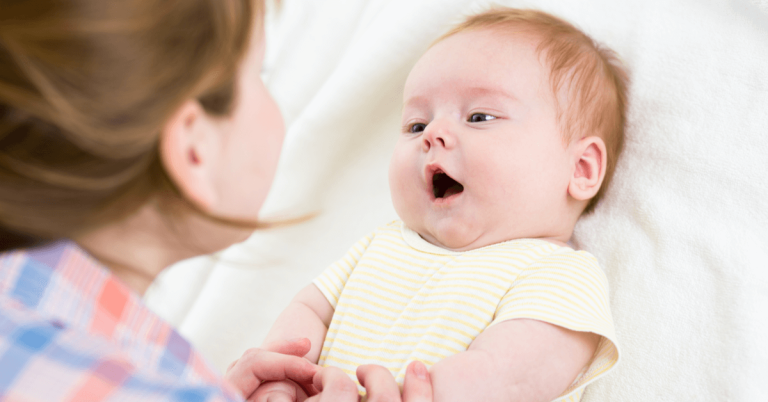You are all aware that you have to eat well and have a balanced diet for your baby’s growth and development as well as preserve your health during your pregnancy period. However, how much of the weight gained during pregnancy actually goes to the baby? Should you “eat for two” during pregnancy? Which nutrients actually support the baby’s growth? What are these nutrients? How to make the baby gain weight during pregnancy? Let’s deep dive!
Where does the weight gained during pregnancy go?
Taking into account that your baby is about 3.5 kg after birth:
- The baby: 3.5-4 kg
- Placenta: 0.5-1 kg
- Amniotic Fluid: 1 kg
- Breasts: 0.5 kg
- Uterus: 1 kg
- Increase in maternal blood volume: 1.5 kg
- Fat Storage: 3 kg or more
- Increased muscle tissue and intracellular fluid: 2-3.5 kg
The total is around 12.5 kg.
Foods That Help the Baby Gain Weight and Support Its Development During Pregnancy
Foods that Benefit the Baby During Pregnancy:
Your baby has already begun and completed the fastest development stage before you even realized you were pregnant. The most crucial developmental milestones, especially cognitive development, have already commenced. This underscores the importance and benefits of planned pregnancies. For example, it’s recommended to take folic acid supplements before conception.
Maintaining a healthy diet is crucial for your baby’s healthy growth. A pregnant woman should consume 300 more calories than a non-pregnant woman. So, you don’t have to “eat for two” during pregnancy. Adding a cup of milk, a fruit, a slice of bread, or a meatball to your diet would be sufficient for that extra 300 calories.
How you eat determines what your baby eats, the baby feeds from the mother.
Now let’s explore the foods that will help your baby gain weight and support their brain development.
Egg
Eggs are the most important protein source after breast milk. They are rich in vitamins and minerals crucial during pregnancy. Eggs contain lutein, an antioxidant important for a healthy pregnancy, and about 25mg of folic acid, which helps prevent birth defects and brain diseases. Incorporating a boiled egg into your breakfast or preparing a vegetable omelette with a teaspoon of oil can contribute to your baby’s proper development and weight gain during pregnancy.
Spinach
Spinach contains iron, vitamin C, and folic acid, which support your baby’s spine development and help you cope with infections. Spinach is a natural source of folate. Including spinach in your diet can ensure proper development and weight gain for your baby during pregnancy.
Fruit and Vegetables
Incorporate vegetables and fruits into every meal to ensure you consume foods rich in vitamins, minerals, and fiber. Adding a generous serving of salad to each meal and consuming a medium-sized banana as a snack can provide essential nutrients for both you and your baby.

Walnut
The omega-3 fatty acids in walnuts support your baby’s eye and brain development. Regular consumption of walnuts during pregnancy can reduce the risk of inflammation in blood vessels. Adding two whole walnuts to your daily diet can provide essential nutrients for your baby’s development.
Dairy Products
Include dairy and dairy products in your daily diet to promote your baby’s growth and ensure adequate weight gain. Dairy products are rich in calcium, crucial for your baby’s developing bones. Incorporating yogurt into your main meals and opting for probiotic-rich foods like kefir for snacks can aid digestion and provide essential nutrients for your baby’s development.
Pumpkin Seeds
Pumpkin seeds are high in iron and zinc, addressing common iron deficiency issues during pregnancy. You can easily incorporate pumpkin seeds into your diet by adding them to morning oatmeal or blending them into snacks.
Meat
Increase protein intake slightly as pregnancy progresses, especially after the 20th week. Meat and meat products are rich sources of iron, supporting your baby’s development. Fish promotes brain and eye development in your baby. Consuming fish at least twice a week is recommended, but avoid bottom-dwelling fish and opt for baking or grilling for healthier preparation methods.
Other Foods for Your Baby’s Development and Weight Gain During Pregnancy
- Avocado
- Broccoli
- Lentil
- Nut
- Green Leaf Vegetables
- Kiwi
- Soybean
- Chickpea
- Flaxseeds
- Oats
- Whole grains
Some expectant mothers, fearing weight gain, may consider eliminating bread and rice from their diets during pregnancy. However, it’s important to note that your body still requires the vitamins and minerals that come from these grains during pregnancy. So, completely cutting out bread or rice is not the right approach. What you should be mindful of is opting for whole-grain products. If you prefer not to consume bread with your meal, you can consider having 3-4 tablespoons of rice as a slice of bread is equivalent to 3-4 tablespoons of rice.
If you have further questions, you can share your experience in the comment.
Have a healthy day!







